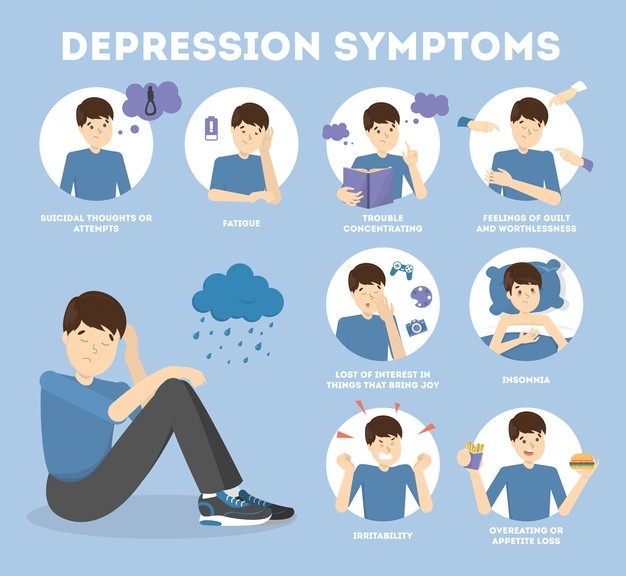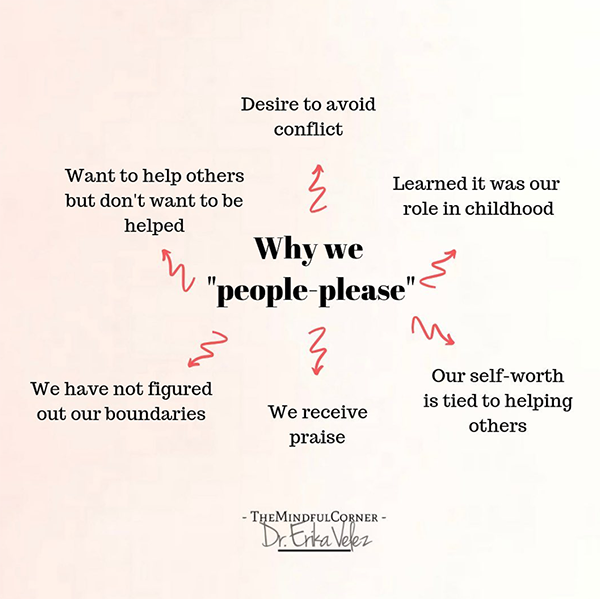How to fix intimacy issues
Learn 10 Ways to Rekindle the Passion in Your Marriage
A good sexual relationship is built on emotional intimacy and closeness.
A good sexual relationship is built on emotional intimacy and closeness.
A good sexual relationship is built on emotional intimacy and closeness.
Rekindle passion in your marriage. Jason and Kendra have been married for 12 years and have three children. Most of their conversations are about work, chores, their kid’s activities, and mundane aspects of their stale marriage.
Kendra puts it like this: “I love Jason, but the passion just isn’t there anymore.”
When Kendra drops this bombshell, Jason responds, “I thought we were doing okay, I really did. Even though we don’t have sex much anymore, it just seems like a phase we’re going through. I don’t have any energy left by the time I hit the bed at night.”
By all accounts, Kendra and Jason were passionate during the early years of their marriage. However, over the last few years, their sex life has dwindled and they rarely spend time together without their children. Kendra seeks out Jason for sexual intimacy and Jason often pulls away.
According to experts, the most common reason couples lose their passion for each other and stop being sexually intimate is a pursuer-distancer pattern that develops over time. Dr. Sue Johnson identifies the pattern of demand-withdraw as the “Protest Polka” and says it is one of three “Demon Dialogues.” She explains that when one partner becomes critical and aggressive, the other often becomes defensive and distant.
Dr. John Gottman’s research on thousands of couples discovered partners that get stuck in this pattern in the first few years of marriage have more than an 80% chance of divorcing in the first four to five years.
Foster Emotional Intimacy
A good sexual relationship is built on emotional intimacy and closeness. In other words, if you’re hoping to improve your physical relationship, you need to first work on your emotional connection. Focus on meeting your partner’s needs and communicating your own needs in a loving, respectful way.
In The Science of Trust, Dr. Gottman explains that couples who want to rekindle their passion and love need to turn towards each other. Practicing emotional attunement can help you stay connected even when you disagree. This means turning toward one another by showing empathy, instead of being defensive. Both partners need to talk about their feelings in terms of positive need, instead of what they do not need.
According to Dr. Gottman, expressing a positive need is a recipe for success for both the listener and the speaker because it conveys complaints and requests without criticism and blame. Dr. Gottman says, “This requires a mental transformation from what is wrong with one’s partner to what one’s partner can do that would work. The speaker is really saying, ‘Here’s what I feel, and what I need from you.’”
Rekindle Sexual Chemistry
During the early phase of marriage, many couples barely come up for air due to the excitement of falling in love. Unfortunately, this blissful state doesn’t last forever. Scientists have discovered that oxytocin (a bonding hormone) released during the initial stage of infatuation causes couples to feel euphoric and turned on by physical touch. It actually works like a drug, giving us immediate rewards that bind us to our lover.
Unfortunately, this blissful state doesn’t last forever. Scientists have discovered that oxytocin (a bonding hormone) released during the initial stage of infatuation causes couples to feel euphoric and turned on by physical touch. It actually works like a drug, giving us immediate rewards that bind us to our lover.
Holding hands, hugs, and tender touch are great ways to affirm your love for your partner. Physical affection sets the stage for sexual touch that is focused on pleasure. Sex therapist and educator Dr. Micheal Stysma recommends that you set a goal of doubling the length of time you kiss, hug, and use sensual touch if you want to improve your marriage.
Sexual attraction is hard to maintain over time. For instance, Kendra and Jason lack passion because they are unwilling to give up control and show vulnerability. As a result, they avoid sex and rarely touch each other. Sex therapist Laurie Watson says, “Most sexual concerns stem from an interpersonal struggle in the marriage. ”
”
Gottman Relationship Adviser
$199.00View Details
Sale!
Gottman Relationship Coach: Enriching Your Sex Life
$49.00View Details
The Gottman Relationship Adviser, the world’s first complete relationship wellness tool for couples, takes the guesswork out of improving your relationship. Measure your relationship health with a research-based self-assessment, then receive a tailored digital relationship plan proven to heal and strengthen your connection.
Here are 10 tips to bring back the passion in your marriage:
1. Change your pattern of initiating sex
Maybe you are denying your partner or coming on too strong. Avoid criticizing each other and stop the “blame game.” Mix things up to end the power struggle. For example, distancers may want to practice initiating sex more often and pursuers try to find ways to tell their partner “you’re sexy,” in subtle ways while avoiding critique and demands for closeness.
2. Hold hands more often
According to author Dr. Kory Floyd, holding hands, hugging, and touching can release oxytocin causing a calming sensation. Studies show it’s also released during sexual orgasm. Additionally, physical affection reduces stress hormones – lowering daily levels of the stress hormone cortisol.
3. Allow tension to build
Our brains experience more pleasure when the anticipation of the reward goes on for some time before we receive it. So take your time during foreplay, share fantasies, change locations, and make sex more romantic.
4. Separate sexual intimacy from routine
Plan intimacy time and avoid talking about relationship problems and household chores in the bedroom. Sexual arousal plummets when we’re distracted and stressed.
5. Carve out time to spend with your partner
Try a variety of activities that bring you both pleasure. Have fun courting and practice flirting as a way to ignite sexual desire and intimacy. Dr. Gottman says that “everything positive you do in your relationship is foreplay.”
Dr. Gottman says that “everything positive you do in your relationship is foreplay.”
6. Focus on affectionate touch
Offer to give your partner a back or shoulder rub. People associate foreplay with sexual intercourse, but affectionate touch is a powerful way to demonstrate and rekindle passion even if you are not a touchy-feely person.
7. Practice being more emotionally vulnerable during sex
Share your innermost wishes, fantasies, and desires with your partner. If you fear emotional intimacy, consider engaging in individual or couple’s therapy.
8. Maintain a sense of curiosity about sexual intimacy
Experiment with new ways to bring pleasure to each other. Look at sex as an opportunity to get to know your partner better over time.
9. Vary the kind of sex you have
Have gentle, loving-tender, intimate, and highly erotic sex. Break up the routine and try new things as sexual needs change.
10. Make sex a priority
Set the mood for intimacy before TV or work dulls your passion. A light meal along with your favorite music and wine can set the stage for great sex.
Even if you are not a touchy-feely person, increasing physical affection and emotional attunement can help you to sustain a deep, meaningful bond.
The good news is that allowing your partner to influence you can reignite the spark you once enjoyed. In fact, Dr. Gottman reminds us that friendship is the glue that can hold a marriage together:
“Couples who know each other intimately [and] are well versed in each other’s likes, dislikes, personality quirks, hopes, and dreams are couples who make it.”
For more ideas on how to rekindle the passion in your relationship, subscribe to The Gottman Relationship Blog below:
Terry Gaspard, MSW, LICSW
Terry Gaspard MSW, LICSW is a licensed therapist and author. ="wpforms-"]
="wpforms-"]
Identify And Overcome Intimacy Issues And Fears | Therapy 2021
Content/Trigger Warning: Please be advised that the below article might mention trauma-related topics that include sexual assault & violence which could potentially be triggering.
Although it’s not a topic most discuss freely or talk with doctors about, it's believed that many adults in Western cultures live with intimacy issues, fear of intimacy, or intimacy avoidance. From one to ten, where would you rate yourself on an authentic intimacy scale? If it’s something less than a ten, keep reading.
What Are Intimacy Issues?
Learn about how to resolve your issues with intimacy.
Identify intimacy issues here
The intimacy definition is the ability to true closeness and connection with another person. There are several types of intimacy – sexual intimacy, spiritual intimacy, and romantic intimacy (or an intimate relationship). Not only does this include romantic relationships and sex but also other types of human relationships that involve being intimate. Social relationships can be considered intimate too, as in the example of having a strong, healthy relationship with your best friend.
Not only does this include romantic relationships and sex but also other types of human relationships that involve being intimate. Social relationships can be considered intimate too, as in the example of having a strong, healthy relationship with your best friend.
Many people with intimacy issues can have few close relationships outside of their families, and even familial relationships may be distant.
Online therapy can help you navigate these relationships and intimacy issues with a licensed professional. A therapist can help you unmask negative attitudes about intimacy, help you develop more positive emotions around it, and help you have a more satisfying sexual relationship.
It may seem like the banter that gets tossed around the locker room or at the office water cooler might be something like “Wow, does that person have intimacy issues?” but it’s a serious thing. It’s not imagined, and it’s not something that your partner is using as a lame excuse not to commit. Intimacy in marriage issues are classified as social phobia; it is a bona fide anxiety disorder, and it can have a devastating effect on a romantic relationship.
Intimacy in marriage issues are classified as social phobia; it is a bona fide anxiety disorder, and it can have a devastating effect on a romantic relationship.
An example of showing intimacy issues is someone who constantly pushes away people they care about without meaning to or realizing they are doing it. A person with intimacy problems might not desire physical contact with a partner and their sex life may be nonexistent. In extreme cases, someone who struggles with intimacy in relationships may begin to have commitment phobia.
Your issues might even prevent you from attracting the right kind of people into your life or forming intimate relationships. Research shows that a lack of being intimate may lead to a shorter lifespan, not to mention the negative impact it has on your relationships. This is one of the main reasons it's important for people who have fears to find healthy ways to deal with intimacy disorders and emotional intimate discomfort.
Lack of being intimate in your relationships and physical issues can cause health issues. People who rate higher on the fear of being intimate scale report more physical ailments and mental health concerns. Many people aren’t aware that this fear can lead to physical symptoms like chronic pain and mental health issues like anxiety disorder, or depression.
People who rate higher on the fear of being intimate scale report more physical ailments and mental health concerns. Many people aren’t aware that this fear can lead to physical symptoms like chronic pain and mental health issues like anxiety disorder, or depression.
Other effects of fear of being intimate can be social isolation, increased risk for depression or substance use disorder (or both), short-term serial relationships, and relationship sabotage.
Signs Of Fear Of Intimacy
- Your relationships tend to be short-lived
- You have communication problems
- You push people away when they try to get close to you
- You sabotage relationships when they begin to get serious
- You avoid physical and sexual contact
- You have an insatiable sexual appetite
- You have low self-esteem
- You experience inexplicable bouts of anger
- You have difficulty establishing close relationships
- You have difficulty trusting other people
- You have difficulty feelings with others
- You struggle with showing your emotions
- You avoid commitment
- You usually seek out partners who are obviously not right for you or relationships that are unstable
- Your partner accuses you of not being there for them
- You are a perfectionist
- You have anxiety at the thought of being touched
- You are consumed with the fear of being rejected or abandoned
Not every single one of these fear of being intimate signs is a sure indicator that you have this fear.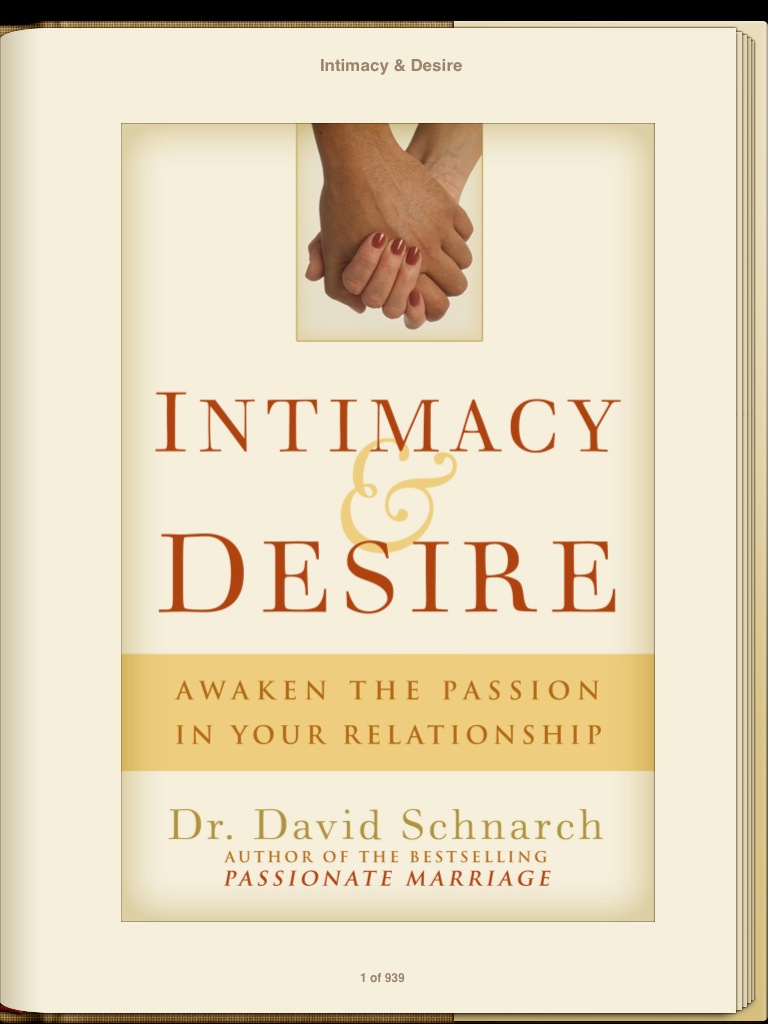 But if you think any of the above apply to you, it might be worth a bit more self-reflection on the subject. Speaking with a professional counselor or therapist can help resolve communication issues and teach you new ways of building intimate connections.
But if you think any of the above apply to you, it might be worth a bit more self-reflection on the subject. Speaking with a professional counselor or therapist can help resolve communication issues and teach you new ways of building intimate connections.
Many indirect factors can contribute to developing a fear of intimacy. While no specific factor has been named as the number one contributing factor, the following are common experiences that people who have a fear of intimacy often report.
Childhood experiences, such as neglect or a history of abuse, may contribute to developing a fear of intimacy in adulthood. Fear of being intimate in adult relationships may show up as communication problems, family problems, and a lack of close intimate relationships. Many adults who have a fear of intimacy can also have attachment issues developed in early childhood. One of the most common fears of being intimate that can lead to problems with being intimate is the fear of abandonment or loss. Abandonment and fear of being intimate are often developed in early childhood and can show up in adult relationships as communication problems and waning being intimate over time.
Abandonment and fear of being intimate are often developed in early childhood and can show up in adult relationships as communication problems and waning being intimate over time.
If the thought consumes you that your partner might leave, it makes sense that you would shy away from investing your whole self as a means of self-preservation. Avoiding being intimate as a defense mechanism is probably one of the more common causes of intimacy problems. You can’t get hurt by anyone if you don’t let them get close to you. This is a direct route to the development of issues with being intimate.
Other possible risk factors for developing a fear of intimacy include the following:
- Verbal abuse
- Physical abuse
- Physical neglect
- Sexual abuse
- Emotional neglect
- Loss of a parent
- Lack of self-confidence
- Abandonment by a parent
- Illness or mental illness in a parent
- Substance use disorder in a parent
- Unhealthy family relationships
- Rape
- Having any sort of mental illness
- Personal history of depression
What Are The Different Types Of Intimacy?
If your partner raises the issue, try to avoid getting angry or defensive.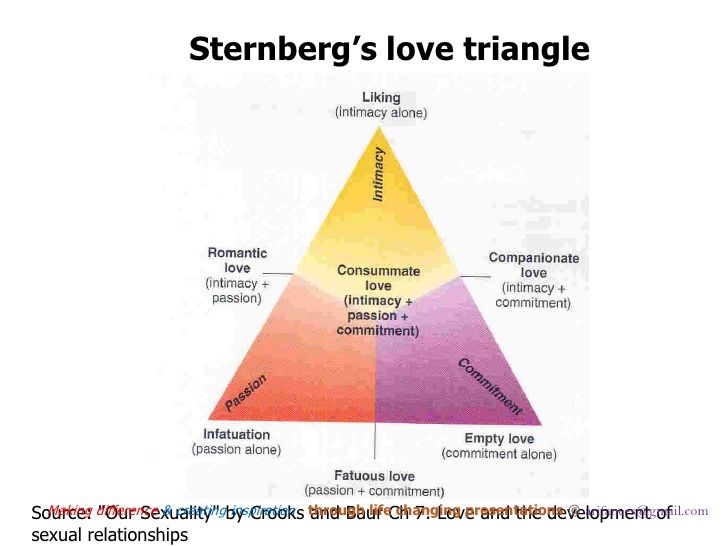 Ask yourself what fear of intimacy signs you may be displaying to your partner. Are you having communication problems or does the problem lie in a deeper fear of intimacy?
Ask yourself what fear of intimacy signs you may be displaying to your partner. Are you having communication problems or does the problem lie in a deeper fear of intimacy?
If fear of intimacy comes up in your relationship, remember to treat your partner with grace. It can’t be easy to be in a relationship with someone who withdraws and shies away from a genuine connection. In some cases, fear of intimacy may even cause you to reject your partner’s sincere love and affection. Many people who fear intimacy aren’t able to recognize when their partners and loved ones are displaying genuine signs of affection.
Here are some tips to help with overcomingfear of intimacy issues:
- To begin overcoming fear of intimacy issues, be open to your partner’s observations and concerns. Be willing to talk openly and honestly about what is causing this fear. Get help from a professional therapist if this fear affects the quality of your life.
- Start thinking about why you feel this way.
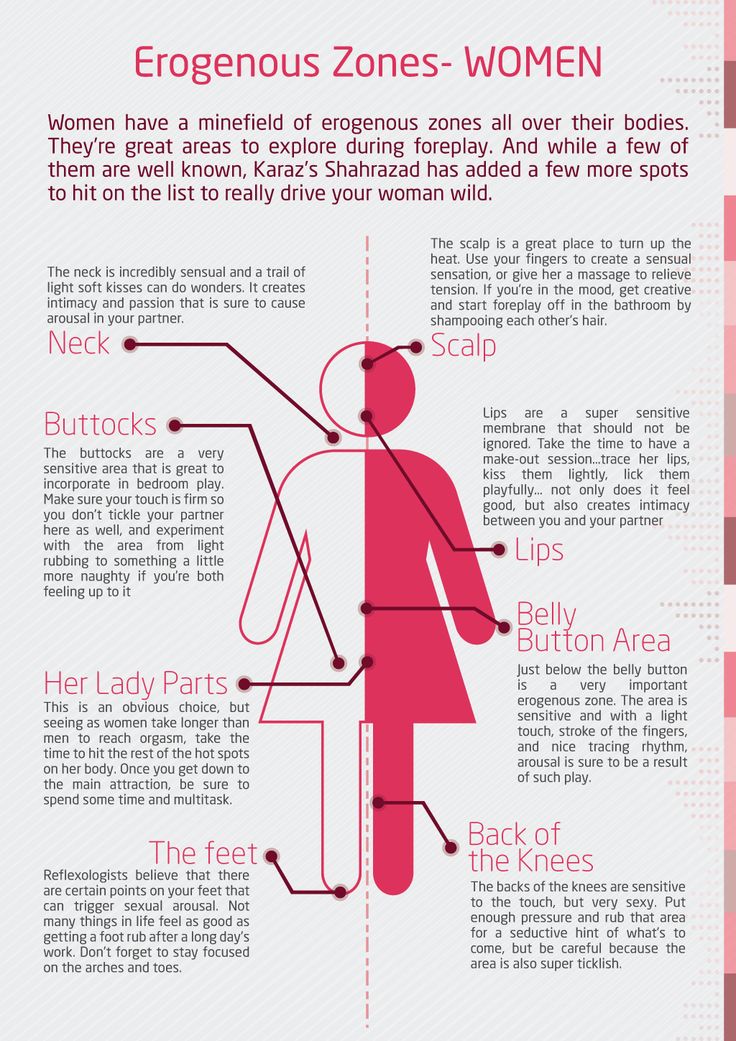 Giving your feelings a name can help you to process your memories and experiences. When did your fear of being intimate begin? Can you remember the first time you realized you had an intimacy issue? Did it happen when your partner attempted to make physical contact with you in an intimate way?
Giving your feelings a name can help you to process your memories and experiences. When did your fear of being intimate begin? Can you remember the first time you realized you had an intimacy issue? Did it happen when your partner attempted to make physical contact with you in an intimate way? - Be brave. Opening yourself to others, exposing your true self, and allowing yourself to be vulnerable takes courage. Learning to overcome your fear of being intimate is a leap of faith, where you jump and hope that someone will catch you. Don’t let this fear keep you from taking that leap of faith to the degree it destroys a romantic relationship.
- Try cognitive behavioral therapy with a licensed therapist to heal your fear of being intimate. If you learn how to rework and reframe negative thoughts, you might be able to shut down your inner critic and gradually resolve your fear of intimacy with loved ones.
- Tension and fear of intimacy are a vicious cycle. The more stressed and anxious you are, the more you’ll avoid intimacy.
 And the more you avoid it, the more stressed and anxious you’ll feel. This cycle of behavior only reinforces the development of this fear. Try yoga or meditation to relieve tension and agitation. If that’s not your style, just setting aside some time for something you enjoy every day should help.
And the more you avoid it, the more stressed and anxious you’ll feel. This cycle of behavior only reinforces the development of this fear. Try yoga or meditation to relieve tension and agitation. If that’s not your style, just setting aside some time for something you enjoy every day should help. - Reflect on your history. Identifying where your fear of intimacy began (and where it manifests in your current life) is the first step to overcoming it. An enmeshed family lacks boundaries with intimacy and overinvolvement in your life can cause relationship issues.
- If your partner has indicated that they are willing to stay the course with you while you work through your fear of intimacy, appreciate their dedication and commitment to making an effort to overcome your fears.
- Make small changes. Practice being vulnerable as you learn to overcome fear of intimacy. Talk to new people, and gently push your emotional envelope. Over time, you’ll be able to work your way up to taking larger risks and making bigger changes.
 Eventually, you’ll learn that there are benefits to intimacy and your authentic self with the world rather than hiding behind a mask of fear and heavy intimacy issues.
Eventually, you’ll learn that there are benefits to intimacy and your authentic self with the world rather than hiding behind a mask of fear and heavy intimacy issues. - Work on your communication skills. Talk with your partner about why intimacy is so hard for you.
- If talk therapy isn’t enough, in extreme cases, supplemental medication may be an option to reduce anxiety and other symptoms that result from fear of intimacy. Please consult with your doctor or primary care physician before considering any medication options.
When Your Partner Is Avoiding Intimacy
Learn about how to resolve your issues with intimacy.
Identify intimacy issues here
If you think or know your partner is dealing with intimacy issues or if you feel your partner is pushing you away, resist the temptation to abandon ship or overcompensate by smothering them. If you chase after someone with intimacy issues, chances are it will make them withdraw even further from you.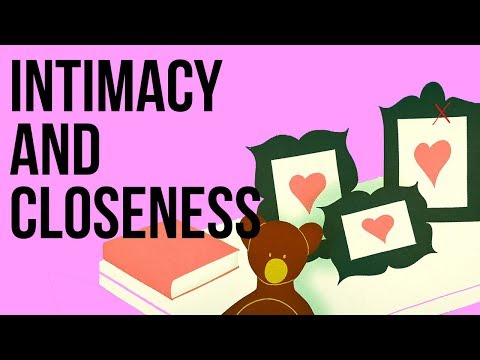
If you value the relationship and think your partner does too, try to be supportive, composed, and non-judgmental. Maintain a balanced distance until your partner lets you know that they are ready to work on overcoming these intimacy issues and on improving the relationship.
If you care enough about your partner and the relationship to put in the effort and see things through, talk to your partner openly and honestly. Let them know you want to understand their feelings and fears, without judgment, and that you’re willing to work through these problems as a team.
Don’t force your partner to talk about the past or experiences they aren’t comfortable discussing but let them know you’ll be ready to listen if and when they ever do want to talk about it.
Don’t give up. Healthy relationships take time and effort, on the part of both parties, and as long as you’re both willing, you can make it work.
If open dialogue, patience, and understanding haven’t been enough to resolve your partner’s intimacy issues, you might also offer to make an appointment to speak with an in-person or online therapist who specializes in couples therapy and can help you navigate the veritable quagmire of problems with intimacy. Couples counseling offers a safe environment for partners to express themselves. Some people find it easier to open up to a therapist than on their own with their partner, and the therapist can also give feedback and advice on the intimacy problems you are having.
Couples counseling offers a safe environment for partners to express themselves. Some people find it easier to open up to a therapist than on their own with their partner, and the therapist can also give feedback and advice on the intimacy problems you are having.
If you’re considering online therapy, a study has shown that it’s just as effective as face-to-face therapy. In some cases, couples found online therapy more productive because they were able to focus on their problems more intently. They also experienced feeling less judged than they would have with traditional therapy.
Overall, although there was a screen between them and the therapists, clients had a more positive experience with online therapy. An online format is especially helpful for people living with anxiety disorders. This study also indicated that online therapy is also effective for treating mental illnesses, such as PTSD.
If you think it would be helpful to chat with a professional either on your own or with your partner, BetterHelp can connect you with a licensed therapist specializing in intimacy issues who can help you work through your vulnerabilities, fears, and concerns. A therapist can also help treat anxiety or other mental health conditions. You can choose a time that works best for you or you and your partner and receive counseling in your own home. Read below for some reviews of BetterHelp counselors from people experiencing similar intimacy problems.
A therapist can also help treat anxiety or other mental health conditions. You can choose a time that works best for you or you and your partner and receive counseling in your own home. Read below for some reviews of BetterHelp counselors from people experiencing similar intimacy problems.
Counselor Reviews
“Janie has been listening to my concerns and the things that are affecting me and my relationship. We have just started working together but she has given me a lot of good things to think about, recommended some reading, and is going to send me some prompts to think of ways to phrase my questions and thoughts to my wife in ways that do not make her fell that I am attacking her or that she needs to be defensive. I look forward to continuing to work with Janie to hopefully save my marriage.”
“Cameron has helped me navigate some incredibly challenging things within my relationship. With his help I’ve developed confidence to be a more assertive person. Therapy had helped me understand myself and my partner much better, in addition to implementing practices and taking action to improve a situation whereas I otherwise may feel stuck or hopeless. I really loved that he took the time to get to know me and my history before trying to “tell me what to do.” I feel like he really understands how my mind operates and therefore can give great, valuable advice, in addition to being a comforting sounding board.”
I really loved that he took the time to get to know me and my history before trying to “tell me what to do.” I feel like he really understands how my mind operates and therefore can give great, valuable advice, in addition to being a comforting sounding board.”
How do I get over my fear of intimacy? Start by addressing the problems at hand and reflecting back to when they began. Speak with a licensed mental health professional to learn new coping strategies for healing and resolving fear of intimacy.
Intimacy progression: Does physical intimacy lead to emotional intimacy? While physical and emotional intimacy can go hand-in-hand, these are two different types of connections. Physical intimacy may lead to emotional intimacy or other necessary factors that are present for developing an emotional connection.
What are the signs of problems with intimacy? Having trouble being physically or emotionally close to your loved ones and close friends or family can be a sign of problems with intimacy. This is especially true if this is a recurring behavior and not an isolated incident. If you think you have a fear of intimacy, contact a licensed therapist or counselor for support.
This is especially true if this is a recurring behavior and not an isolated incident. If you think you have a fear of intimacy, contact a licensed therapist or counselor for support.
Why would a man avoid intimacy? Men and women may avoid intimacy to avoid feeling the pain of disconnection or loss. Fear of intimacy is based on each person’s life, history, and temperament. Each person who avoids intimacy or has a fear of issues with intimacy has specific factors that contributed to its development.
What is the fear of intimacy called? Fear of intimacy is often called intimacy disorder, issues with intimacy, or fear of intimacy.
Why am I afraid of physical intimacy? There are a number of factors behind your fear of physical intimacy. Someone with a fear of physical intimacy may have trust issues, low self-esteem, or past experiences of physical abuse. People with an avoidant personality disorder or avoidance anxiety often avoid physical intimacy as well.
Why does intimacy or being intimate make me uncomfortable?
Intimacy can make someone uncomfortable for a variety of reasons. Some people’s brains are wired to avoid intimacy if their basic needs were not met during their childhood. Someone who has recently gone through a breakup may subconsciously attempt to themselves by avoiding intimacy. Low self-worth can also cause someone to stray away from intimacy.
Some people’s brains are wired to avoid intimacy if their basic needs were not met during their childhood. Someone who has recently gone through a breakup may subconsciously attempt to themselves by avoiding intimacy. Low self-worth can also cause someone to stray away from intimacy.
How do you date someone who has intimacy problems?
Dating someone with issues with intimacy can be challenging at first. You want to open yourself up to them, so they understand that you are there for them whenever they are ready to begin tackling the issues. Encouraging your partner to open up about their past can also be helpful. However, you will want to avoid being pushy and overwhelming. Remember to take baby steps throughout the process. Practicing patience will be important.
Can a lack of intimacy ruin relationships? If left unaddressed, a lack of intimacy can strain a relationship. Learning to communicate your thoughts & feelings regarding intimacy is an important step toward fixing issues regarding intimacy.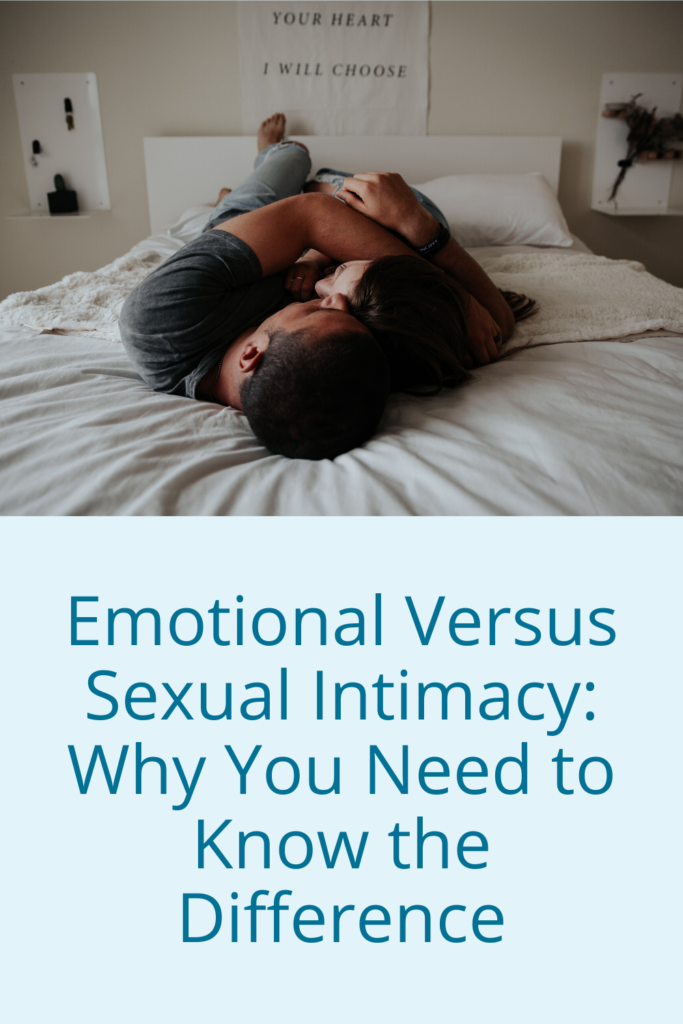
What is an intimacy disorder?
An intimacy disorder is a mental health condition that develops as a result of being afraid to make close or intimate connections.
Can you have a relationship without intimacy?
While you can have a relationship without intimacy, it’s not recommended. People are socially inclined and often need physical and emotional support from close counterparts and friends. This is the case even if only for short periods of time. Our bodies and minds are wired for intimacy.
If you’re still curious about the answer to this question, ask your mental health counselor during your next appointment.
Below are additional commonly asked questions on this topic:
What are signs of intimacy issues?
What are examples of intimacy issues?
How do you fix intimacy issues?
What causes lack of intimacy?
What are the three C's in a relationship?
How do you fix lack of emotional intimacy?
Why is my partner not intimate with me?
How do I explain intimacy issues with my partner?
Can a relationship survive without intimacy?
What causes a sexless relationship?
How do I know if I am asexual? People who are asexual often experience little to no sexual attraction toward others. Being asexual is not a mental illness. Some people who are asexual still seek a romantic relationship with others. However, they are void of experiencing sexual attraction toward their partners. Contrary to popular belief, some asexual people do engage in sex.
Being asexual is not a mental illness. Some people who are asexual still seek a romantic relationship with others. However, they are void of experiencing sexual attraction toward their partners. Contrary to popular belief, some asexual people do engage in sex.
What are the symptoms of abandonment problems? Some of the most common symptoms of abandonment fears include the inability to trust others, a lack of emotional intimacy or being able to be emotionally intimate, the tendency to push others away, and the need to control one’s partners or friends.
How do you know if a guy is scared of commitment? Men who are afraid of commitment are sometimes hard to spot. Some men don’t want to admit that they have commitment fears, or intimacy fears, while others grow confused whenever you try to bring up the relationship. If he has had negative experiences in the past or fails to understand the positive side of committing to a serious relationship, he may have commitment fears. A guy that is scared of commitment may jump into a sexual relationship too quickly or may not want one at all.
A guy that is scared of commitment may jump into a sexual relationship too quickly or may not want one at all.
Signs of commitment fears? Some signs of commitment fears are unavailability, excuses, procrastination, and disinterest in making long-term plans or goals with a partner.
Learning to overcome the fear of commitment or possible intimacy issues is not easy.
If you are seeking medical treatment for your problems with intimacy or are concerned about other mental health conditions, the licensed mental health professionals at BetterHelp may be able to help you. Contact the BetterHelp team today to get started.
How to Overcome the Fear of Intimacy - Knife
You may have already met people along the way who were sincere conversationalists, tactful lovers and caring listeners, and then for no reason at all pushed you away and said: “Everything has gone too far. We need to break up." This is often done by counterdependent people - those who are afraid of emotional intimacy, although they want it as much as you do.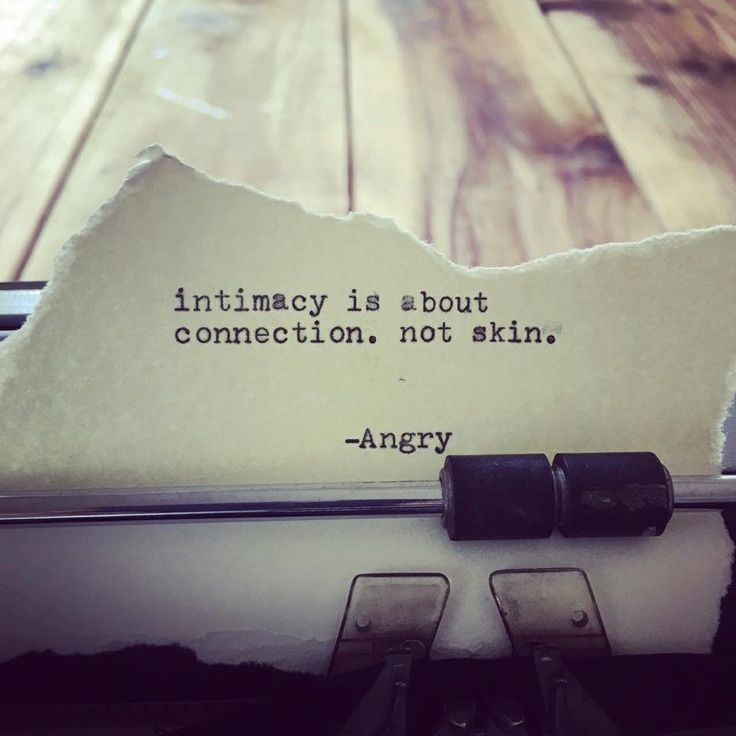
Clinical psychologist Angelina Chekalina explains that counter-dependence is a form of self-defense.
“When a person enters a relationship and begins to feel something that is vaguely reminiscent of what he experienced in childhood, many emotions from past traumatic experiences come to the surface, which are not experienced and repressed. He becomes uncomfortable, and even painful. And I want to quickly do so that it does not hurt. But there is no such way. And then running away from painful intimacy can become an effective form of behavior.”
In the book “Fear of Proximity. How to stop being defensive and start loving,” psychotherapist Ilse Sand lists several ways that counteraddicts resort to insuring their hearts from pain. The first one is rejection of real attachments and replacing them with relationships based on mutual exchange, for example: you give me sex, I give you money. Sand sees nothing bad in such a relationship, but argues that if this is the only kind of affection that a person is capable of, then he loses a lot.
The second trick is endless attempts to catch the "pie in the sky" . In real life, it may look like this: a guy constantly falls in love with girls who are indifferent to him, which allows him to stay at a safe distance and still experience feelings. Or - and this is the third way of self-defense - he hopes to melt the heart of the beautiful , make her happy with his love - and that then she will never run away from him. And if the girl still shows interest in him, he can start actively looking for flaws in her . At some point, it may seem to him that she is not very smart, not very beautiful, and generally an abuser. Who seeks will always find!
Ilse Sand names a couple more strategies for self-defense - these are the search for an ideal partner and the desire to become ideal yourself . In the first case, a person cannot come to terms with the fact that his chosen one is somehow not up to "the same one" or his feelings for him are not as bright as "should" be. In the second, he tries to make of himself someone who could be loved forever. And self-help literature helps him in this, in which the mantra is repeated page after page: "First heal yourself and only then build a relationship."
In the second, he tries to make of himself someone who could be loved forever. And self-help literature helps him in this, in which the mantra is repeated page after page: "First heal yourself and only then build a relationship."
Symptoms of fear of intimacy
I asked several men and women to share how fear of intimacy manifests itself in their lives.
Anatoly, 32 years old : “I understand that women need me only when everything is fine with me, and if I feel like a ruin, I show my weakness, they start kicking, beating and abusing me. However, my desire to be with someone close did not go away, so I overcame fear, entered into a relationship, got hurt and crawled away. And so it happened again, and again, and again. Finally tired of living like this, I forcibly protected myself from any contacts. Every day I want to try to find intimacy, but I hold myself back.”
Asya, 30 years old : “I feel almost physical discomfort from the presence of another person when I understand that anyone can see me: both in the“ instagram-front ”incarnation, and in unsightly angles. I noticed that I avoid answering questions that require frankness, that I stoop if a person shows attention to me and involves me in close communication; muscles contract, tremors go through the body - the classic "run" reaction is turned on. I don’t trust people, I’m afraid to make a mistake, it’s difficult for me to write first or ask for a date, so I avoid intimacy, and this turns into (self) isolation, both in friendly and romantic relationships.
I noticed that I avoid answering questions that require frankness, that I stoop if a person shows attention to me and involves me in close communication; muscles contract, tremors go through the body - the classic "run" reaction is turned on. I don’t trust people, I’m afraid to make a mistake, it’s difficult for me to write first or ask for a date, so I avoid intimacy, and this turns into (self) isolation, both in friendly and romantic relationships.
Mikhail, 25 years old : “When I am alone, I constantly seek the attention of women. But as soon as there is a hint of reciprocity, I have obsessive thoughts and fear that I will stop controlling myself and start hammering on myself, my boundaries and desires to please another person. These thoughts make me find evidence that this partner is bad, and urgently leave him.
Petya, 23 years old : “I have no fear of intimacy with girls - I easily build friendly relations with them. But with the guys there is anxiety. Firstly, I am afraid to meet men who are attractive to me, so I often communicate with those who are not quite my type. Secondly, if a guy with whom I went on a date a couple of times or we had sex starts to like me, I avoid him. He may ask why we do not see each other, and I write that I am busy or that I have a difficult period, and then I block him on all social networks. That is, yesterday I liked the person, but today I don’t feel anything, as if there is a desert inside me. Probably, my biggest fear is that my heart will be broken, as was the case in my first serious relationship, after which I had many years of depression. So now I'm trying my best to protect myself."
Firstly, I am afraid to meet men who are attractive to me, so I often communicate with those who are not quite my type. Secondly, if a guy with whom I went on a date a couple of times or we had sex starts to like me, I avoid him. He may ask why we do not see each other, and I write that I am busy or that I have a difficult period, and then I block him on all social networks. That is, yesterday I liked the person, but today I don’t feel anything, as if there is a desert inside me. Probably, my biggest fear is that my heart will be broken, as was the case in my first serious relationship, after which I had many years of depression. So now I'm trying my best to protect myself."
Toma, 40 years old : “A close person is my enemy. I'm afraid that if I open up to him, sincerely tell about my feelings, experiences, about something very personal, then he will then take advantage of this.
Similar symptoms can be found in all of these stories. Some of them are mentioned in "Fear of Proximity" by Ilse Sand, others are described in the book "Flight from Proximity" by psychologists Berry and Janey Weinhold. Here they are:
Here they are:
Reasons for fear of intimacy
Let's say you have found 10 of these signs in yourself and decide that you want to get rid of them. You go to a psychologist, and the first thing your therapy begins with is to find the causes of your fear. Psychologist Angelina Chekalina says that for this you will have to turn to the early experience of relationships with significant others: parents, grandparents and other relatives, peers or other people who are important to a particular person.
“We need to find out if the person has had a traumatic experience, such as physical, emotional, sexual abuse. Did he have experience of loss, did he receive support, protection, sympathy, were his needs for autonomy met, could he freely express his emotions, talk about his needs. If a person had at least one such experience, then there will be no trust and security in the relationship, but it will be painful and scary. In addition to thinking about relationships as unsafe, the experience of rejection, abandonment, and abuse can also form distorted ideas about people and yourself: for example, “I’m so bad that I don’t deserve to be treated well.
”
Why look at this? Because at the heart of such a view are attachment theories. One of them was designed by John Bowlby and Mary Ainsworth. According to her, for a child, attachment is important from the point of view of safety and survival, it is biologically determined, and the experience of relationships with significant adults in the first years of life determines its further mental development and ability to build relationships. Based on fieldwork in Uganda, longitudinal studies in Baltimore, and the Stranger Situation experiments, Mary Ainsworth identified four types of attachment.
- A secure attachment pattern is formed when the mother (or other primary caregiver) is tender, caring, and sensitive to the baby's needs during the first months of a child's life. Children with this type of attachment are not afraid to explore the world because they are sure that their significant adult will return when they need it.
- An ambivalent type of attachment is formed if the mother was unpredictable and inconsistent in her actions.
 When she leaves, the child feels anxious, and when she returns, he does not feel relieved or even shows aggression. That is, children with this type of attachment seek contact with the parent, but at the same time resist it.
When she leaves, the child feels anxious, and when she returns, he does not feel relieved or even shows aggression. That is, children with this type of attachment seek contact with the parent, but at the same time resist it. - Anxious-avoidant type is formed if the mother was cold, non-tactile and avoided contact with the child. In this case, the child will also avoid contact with an adult and show little emotion when he leaves and comes. It is assumed that the equanimity of such children masks their grief.
- The disorganizing type is attributed to children who show conflicting behavior: they are either drawn to adults, or afraid, or rebel.
B 19In the 1980s, scholars Sidney Hazan and Philip Shaver applied Bowlby and Ainsworth's theory of attachment to adult romantic relationships. They proceeded from the fact that a close relationship between two adults is a "safe haven", like a "mother-child" relationship, that is, their most important function is to ensure the safety of partners.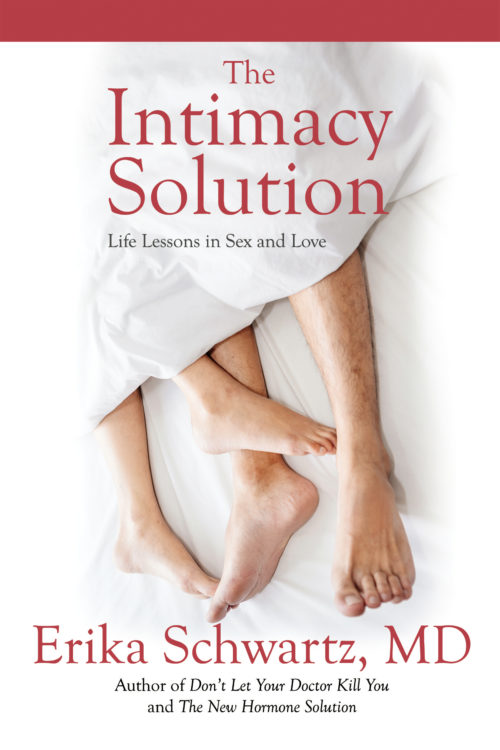 Hazan and Shaver also identified four types of attachment:
Hazan and Shaver also identified four types of attachment:
- Adults with secure attachment types perceive themselves and others positively, they seek closeness, are not afraid to open up to a partner, be honest and in a good way depend on him, but at the same time remain self-sufficient .
- People with anxious type of attachment often seek confirmation of their own worth, underestimate themselves and idealize their partner. They can “strangle” with their love and become very jealous. They may also often feel that they are not loved.
- A person with avoidant-rejecting type of attachment may consider himself strong and independent, think that he does not need anyone. He can keep a distance, show coldness, hide feelings, break off relations first, be afraid to show weakness in front of a partner that he will be abandoned.
- anxious-avoidant attachment partners seek intimacy but are afraid of rejection, so they end relationships when they become too close.
 It is difficult for them to trust another. They may have a "loud" inner critic, a strong fear of rejection.
It is difficult for them to trust another. They may have a "loud" inner critic, a strong fear of rejection.
Here you can find out your type of affection.
So, people can acquire counterdependence if they were separated from their mother too early in childhood or did not receive enough care and warmth from their parents. Therefore, in adulthood, intimacy may be associated with the pain of loss or rejection.
Lina, 25 years old : “When I was two years old, my mother went to the hospital and left me with my father. I was told that I then cried for several days, did not eat and practically did not sleep. And when my mother returned, I did not run to meet her. Apparently, she stopped trusting her. I grew up - she worked a lot and gave me to my grandparents for three months. And distrust grew. Therefore, now it is difficult for me to open up to people, show my emotions, I am wildly afraid that they will leave me, and I constantly check my partners for lice: I throw tantrums, be rude and try to leave to find out if they will stop me or not.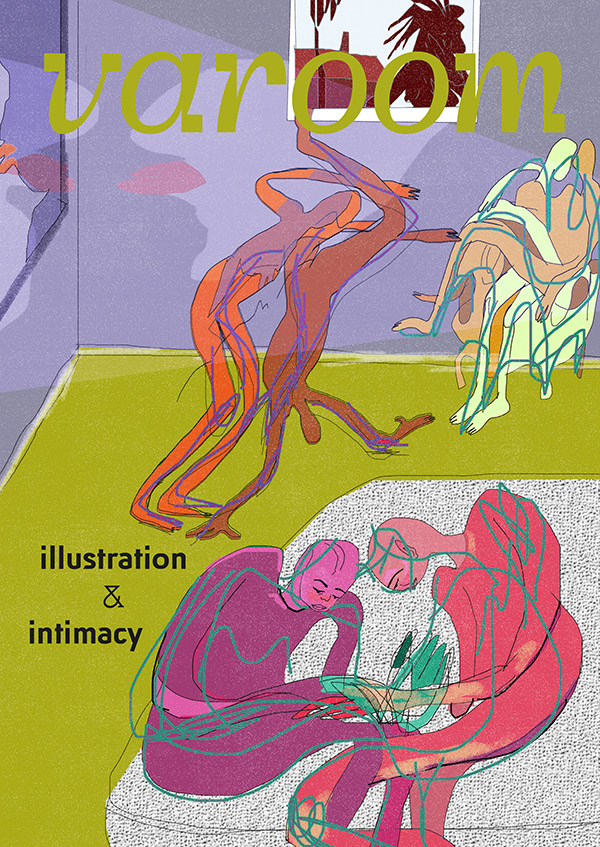
Another reason may be overprotective parents. Such controlling behavior does not allow the child to gain independence, and in the future he perceives close relationships as a threat to personal freedom.
Tanya, 33 years old : “I am a late child, and I also have a heart defect from birth, so my parents wrapped me in a blanket out of care and took care of me until I was 22 years old. I have never had a long relationship, a maximum of six months. The first months everything goes well, we talk about our interests, go on dates, have sex, and then questions about childhood begin, talk about the status of our relationship, and I literally turn away from the person. He becomes disgusting to me, and I can no longer have sex or communicate.
The third option: the child could observe the relationship of significant adults, in which there were screams, quarrels, violence, and decide that the relationship is a pain that he definitely does not need.
Alina, 31 years old : “My dad drank a lot and beat my mom. We constantly had screams in the house and a lot of fear. I just can't get over my relationship panic. And I think it's better to be alone than to meet the same man."
We constantly had screams in the house and a lot of fear. I just can't get over my relationship panic. And I think it's better to be alone than to meet the same man."
Devaluation of the child's feelings can also cause fear of intimacy. Parents could support certain emotions of the baby and reject others that were “unfavorable” to them. Having matured, such a person may conclude that it is impossible to express their true feelings.
Asya, aged 30 : “My perfectionist parents firmly planted in my head the thought “Either be the best or not at all” and instilled the habit of earning love with achievements or “good” behavior. Now I track self-accusations that sound in parental voices, most often absolutely groundless. Well, I'm afraid to make mistakes."
There is also an assumption that negative life experiences can change the type of attachment of a person, that is, traumatic relationships in adulthood can become a source of fear of intimacy. This was the case with Anatoly, who, after several toxic relationships, put an end to his personal life. And Toma, whose first husband died, and now she is very afraid of losing her partner.
And Toma, whose first husband died, and now she is very afraid of losing her partner.
Fear of intimacy as a social phenomenon
Sociologists look at the problem of counterdependence more broadly and take into account the environment. As Evgenia Shamis, coordinator of the Theory of Generations in Russia — Rugenerations project, notes, the childhood of the generation of the current 25-30-year-olds took place in the 1990s and early 2000s, when major economic crises affected almost every family in our country. Political unrest, unemployment, and the struggle for a better life all robbed the children of that time of the parental warmth and care that we know affects the formation of attachment.
Modern parents, in turn, apparently trying to compensate for this lack of love, often practice helicopter parenting — this is how the good old hyper-custody is called in foreign media. They buy smart watches for children that track their location, send them to numerous circles and worry about depriving the child of attention.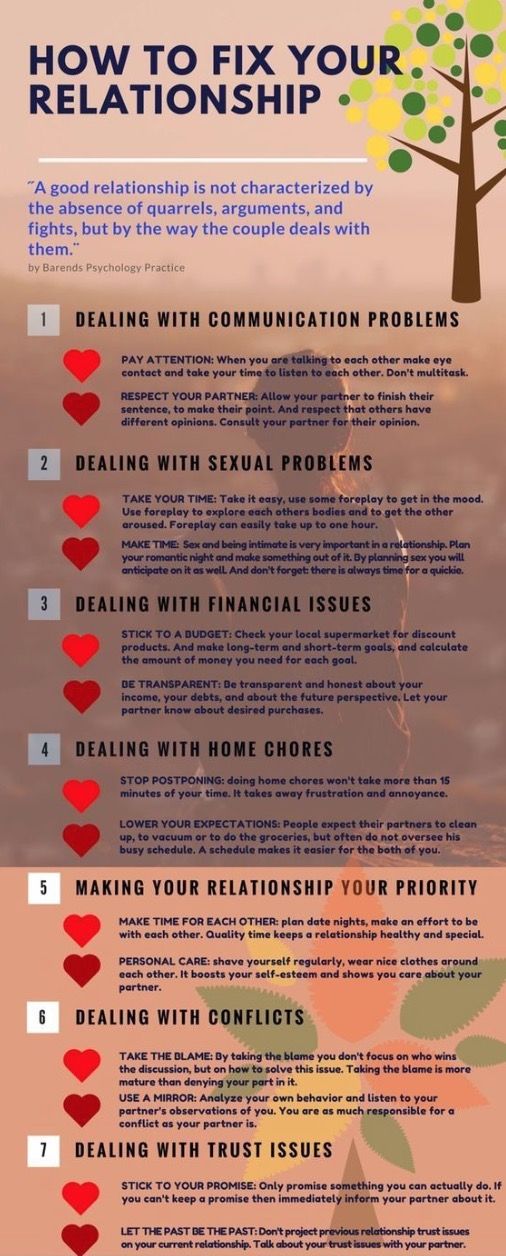 So far, there are no studies on how this format of parenting affects the relationship of their children, but we already know that this approach can also be fraught with counterdependence.
So far, there are no studies on how this format of parenting affects the relationship of their children, but we already know that this approach can also be fraught with counterdependence.
Moreover, modern popular culture, with its cult of individuality and phrases like "I have myself - and this is the most important thing" or "I don't owe anyone anything" encourages counter-dependent behavior. Polina Aronson, a sociologist and author of the book Love: DIY, tells how we came to the conclusion that being alone is much safer than being in close relationships:
“Firstly, life has become easier and more fun, so people in big cities , which can easily provide for themselves, choose singletonism. Secondly, intimacy is subject to a wild number of requirements: it should not contain gaslighting, abuse, harassment, etc. On the one hand, this is not bad, because Soviet pop culture often legitimized violence by talking about love. We can see this, for example, in the book "Bury Me Behind the Baseboard", in which the grandmother and mother tyrannized the boy because they loved him.
And it turned out that the post-Soviet generations grew up with the fear of love as a transgression, because in their eyes it is inevitably associated with violence, and the violation of boundaries can by no means be pleasant. At the same time, a neoliberal agenda comes to us with the leitmotif "no one owes anything to anyone", which is successfully integrated into the Soviet understanding of the world with Solzhenitsyn's "don't believe, don't be afraid, don't ask". As a result, we are dealing with a ruthless form of attitude towards oneself, which forbids a person to take from others. And people become afraid to open up to others and depend on them even for a second.”
5 steps and one exercise to treat the fear of intimacy
Clinical psychologist Angelina Chekalina believes that the therapist-client relationship can become a relationship - perhaps the first in a person's life - in which his need for secure attachment will be satisfied . And this is the first step to healing the fear of intimacy.
And this is the first step to healing the fear of intimacy.
The second is empathy training because often these people have not had the experience of unconditionally accepting their feelings. They have learned to be strong and do not tolerate weakness in themselves and other people. In general, you need to do painstaking work with emotional intelligence.
Next comes working through false beliefs eg: “If I trust other people, I will lose myself”, “If I listen to what others say, it will change my own views”, “If I get close to someone he will see how unattractive I am and will reject me.” To work with beliefs, methods from rational-emotional-behavioral therapy can be used with a focus on reformulating irrational attitudes.
The fourth step is work on personal boundaries . Counterdependent people may or may not have rigid personal boundaries and be unable to stand up for themselves. And then the task is to create more flexible boundaries that are optimal for relationships.
And the fifth is development of conflict resolution skills . Due to "undeveloped" personal boundaries, counterdependent people can avoid conflicts, because they can easily be "bent" in them. Or, in a conflict situation, they may begin to speak from the position of a wounded child, in other words, "throw insults." You can read about this in Marshall Rosenberg's book Nonviolent Communication.
Psychologist Maria Volodina says that the most important task in working with the fear of intimacy is healing the wounded inner child. To do this, she offers an exercise that you can do yourself.
“In order to get rid of the fear of intimacy, you need to face the negative feelings of the inner child associated with the fact that the parents did not give him something, relive them and be freed.”
Well, a sincere relationship between two adults can also become therapeutic. If a partner with a secure type of attachment is patient enough, creates a sense of security in the second partner (for example, with an anxious type of attachment), supports him, then after some time the latter will have a positive experience that will help reduce anxiety.
Why are you afraid of close relationships and is there anything you can do about it
Intimacy is different - intellectual, emotional, sexual. Intimacy implies the ability and desire to share one's thoughts, emotions, feelings and innermost experiences, to allow another person to one's body. There are people who find it extremely difficult to trust themselves to someone . They are afraid to open up, to show real feelings - and there are various reasons for this.
Karine Avanesyan
practicing psychologist, member of the Monstars influencer team
— Fear of intimacy is a paradoxical phenomenon. On the one hand, everyone wants to find a person who is similar in spirit and share a feeling of love and affection with him. On the other hand, as soon as a person appears on the horizon with whom intimacy is possible, the first begins to panic and reject.
The one who avoids intimacy is called counterdependent. Counterdependence is dependence on independence.
Possible reasons for fear of close relationships
Have you been betrayed or deceived
Perhaps there is no person who did not get burned one day, trusting and opening up to someone too much. After deceit, neglect of feelings, betrayal, our brain remembers that excessive emotional openness leads to pain. Therefore, he tries with all his might to avoid repeating this experience. Surely you have experienced a feeling of "internal" pain after a quarrel or a difficult breakup. It didn’t seem to you that for the human brain there is no difference between physical pain and moral pain.
You don't trust people
You were offended in childhood, loved ones mocked you - the reasons can be different. If you are a hypersensitive person, even a minor remark could cause you serious injury and cause you to avoid intimacy in the future.
You are afraid of judgment or ridicule
You avoid intimacy because you are ashamed of your real self, your emotions, appearance, attitudes, beliefs. At some point, you decided for yourself that it is easier to close yourself off from everyone than to constantly expect condemnation or ridicule.
You are afraid of being abandoned
Usually this fear comes from early childhood. The child is left alone for a long time, they do not have time to pick him up from the kindergarten at the usual time, they forget about him - and the kid is horrified that the parent supposedly left him forever. Such an experience can pass without a trace, or it can leave a deep mark and affect adult life.
You are afraid that you will cease to exist as a person
You have long and carefully shaped yourself as a person and now you are afraid that someone will “destroy” you at one moment. Fear of being controlled. The fear of being "absorbed" by another person appears due to self-doubt. It seems to you that you do not have enough energy to be on an equal footing with another person.
The fear of being "absorbed" by another person appears due to self-doubt. It seems to you that you do not have enough energy to be on an equal footing with another person.
Karine Avanesyan
practicing psychologist, member of the Monstars influencer team
— Man is a social being. In childhood, parents swaddle us, wash, hug, cradle. The process of birth and growing up of a baby implies close contact, the baby cannot survive without parental care. It turns out that from childhood we are accustomed to contact, to tactility, we need "stroking" - physical and psychological. Everyone needs support, care, affection and love. This is how we are.
The reasons for the fear of intimacy lie in childhood. The parent is the most important person in a child's life, and it is from the parents that the child learns love, intimacy, emotionality, tactility. A counter-dependent person could be rejected, ignored, or he did not have an emotional connection with his parents. Because of this, the child received a psychological trauma that he would never want to experience again. Now he lives according to the scenario: “I will be the first to reject my partner so that he does not have time to leave me and I do not experience that pain again.”
Because of this, the child received a psychological trauma that he would never want to experience again. Now he lives according to the scenario: “I will be the first to reject my partner so that he does not have time to leave me and I do not experience that pain again.”
How to tell if you are afraid of intimacy
Fear of intimacy can be experienced by both very open and sociable people, and closed ones. Here are signs that indicate that you are afraid of intimacy:
You go on dates without commitment
Meetings without obligations seem to you a good alternative to a serious relationship. You often change partners, while avoiding talking about the future and feelings. You prefer an anonymous sex dating app to Tinder - you don't want to contact people who are planning something serious. You say you want to live for today, but sometimes you realize that you are deceiving yourself.
You have isolated yourself from people
And it's not about self-isolation because of the coronavirus. You do not try to establish connections, communicate, avoid any communication other than forced, for example, at work. It seems to you that no one can understand you, so there is no point in wasting energy.
You do not try to establish connections, communicate, avoid any communication other than forced, for example, at work. It seems to you that no one can understand you, so there is no point in wasting energy.
It's hard for you to explain what you want
Because of this, the relationship does not last long. Partners do not know how to read minds, and it is difficult for you to express your desires and needs. In this way, you can push away a person who will eventually leave you without understanding the reason.
You feel that you do not deserve attention and support
Low self-esteem, neglect of oneself as a person leads to ignorance of real needs. Perhaps you want warmth and emotional closeness, but you think that you do not deserve it.
You avoid sex
under various pretexts. You've convinced yourself that you don't feel like it or that sex is an unnecessary cost of communication. In fact, it is difficult for you to open up to another person.
In fact, it is difficult for you to open up to another person.
Karine Avanesyan
practicing psychologist, member of the Monstars influencer team
— When someone by his actions or words recognizes and shows the importance of the counter-dependent for himself, it seems to him that he is being strangled. He begins to avoid meetings, moves away and behaves coldly. Interestingly, from intimacy and love, such a person really becomes hard and even physically ill.
The counter-addict is in a trap: on the one hand, he is afraid of intimacy and runs away from it so as not to suffer as in childhood, and on the other hand, he wants intimacy because he feels lonely. But he cannot afford it.
As a rule, people who have a fear of intimacy are successful professionals, workaholics and perfectionists. Why do these people go into perfectionism and strive to be perfect? They are driven by the fear of rejection. To protect himself, a person tries to be perfect.
To protect himself, a person tries to be perfect.
The counter-addict seeks not to depend on anyone and to provide himself with everything he needs. He is financially independent, he feels great alone, even locked up. He doesn't need someone else.
The usual feelings of a counter-addict: anxiety, self-aggression (aggression directed at oneself), feeling that he can do more and better.
Coping
Each case is individual, so the best solution is to find a therapist or psychologist with whom you will be comfortable solving the problem. Compassion for yourself and acceptance of your feelings is the first step towards overcoming the fear of intimacy. Give yourself time, don't make hasty decisions. Imagine that that very child still lives inside you - a little boy or girl who really wants to feel the safety and care of a loved one. Now you are able to give yourself all the warmth you need.
Karine Avanesyan
practicing psychologist, member of the Monstars influencer team
— Fear of intimacy is a deep problem.
